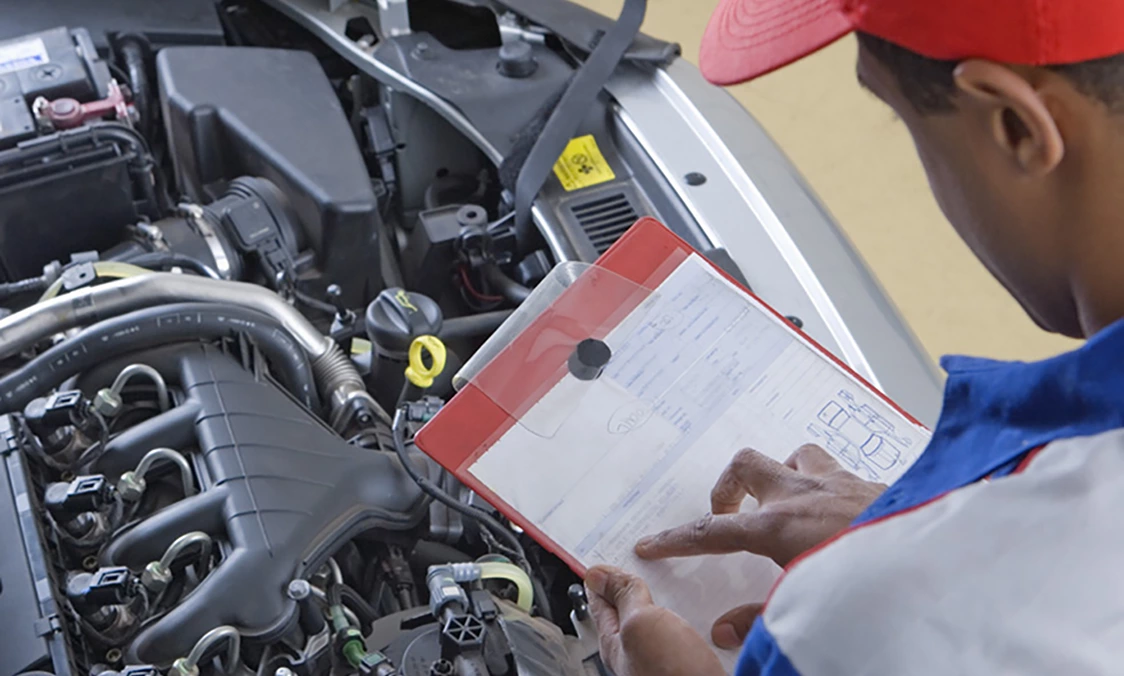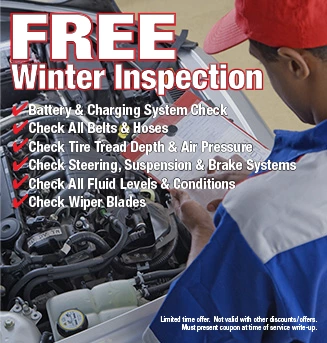Fall and Spring Checkup in Troy
May 1, 2016
When I was a kid, my dad always made sure he took the cars in for Spring and Fall checkups. I was telling a friend that it's about time to get into Auto Lab Troy for a checkup and he said that he read on the internet that modern cars don't need seasonal service.
My friend is (technically) right about some things, but from a practical standpoint, a seasonal check up still makes sense.
Back when my dad was teaching me about how to take care of the family vehicle, most of them used a different weight of oil in the winter and in the summer. But most of today's modern engines run the same oil year round. High-tech engines and high-tech motor oils are better able to handle the seasonal changes.
Your owner's manual or Troy service advisor at Auto Lab Troy can tell you the right oil to use.
Of course, you're concerned about the coolant or antifreeze. You don't want to overheat in the Michigan summer or freeze up in the winter. Your engine cooling system protects against both of these things. And modern coolant — 'antifreeze' as it's sometimes called — is up to doing both very well. It's designed to last for longer distances than most people drive in a year or two.
So how does a Spring and Fall check-up fit in? Let's start with Spring. Summer is coming. That means heat, more driving and road trips. It just makes sense to check your fluid levels and do a visual inspection to see that everything is up to snuff.
You may not be scheduled to drain and replace the coolant for some time, but you need to make sure you have enough coolant and that you don't have any leaks or hoses that are about to fail.
That's pretty practical: a check-up to see if there are any problems or emerging conditions that could later become a problem, like a cracked belt.
And the same principle applies for getting ready for winter. Cold weather means lots of failed batteries. It takes more power to crank up a cold engine, and cold also decreases the available cranking power the battery has available.
So a battery test in the Fall could tell you if you've got a battery that is running on its last legs. And of course, if you live where winter temperatures get below 45 degrees F (7 degrees C) or you have ice and snow, you'll want to consider changing to winter tires.
So Spring and Fall auto checkups at Auto Lab Troy are practical reminders to get ready for the demands of the hot and cold seasons to come.
And odds are that you have one or more routine services that are due anyway. Like a transmission service, brake or power steering fluid, differential service — stuff like that. Are your wiper blades still good? Are your headlamps starting to dim?
So Spring and Fall, change your clocks, replace the batteries in your smoke detectors and get a check-up for your cars.
See, dad was right again.
Come and see us at Auto Lab Troy for your Spring and Fall automotive checkup.
Auto Lab Troy
2790 West Maple Rd.
Troy, Michigan 48084
(248) 643-7690
Need Service?
More articles from Auto Lab Troy

It's (Not) Complicated (Engine Air Filter)
December 22, 2024
While many components of your vehicle are complex and composed of lots of mechanical and electrical parts, there's one that isn't complicated but still important. It's your engine air filter. (And, we should point out, the engine air filter isn't to be confused with the cabin air filter. The ca... More

Putting a Stop to Brake Problems (Brake Service)
December 15, 2024
It's safe to say that most drivers take their brakes for granted. You press on the brake pedal and the vehicle slows down or stops. It's easy to see why it is so important for your vehicle's brakes to be working correctly. Brakes are an important safety feature of any vehicle. When it comes to... More

Why is Air Not Coming Out of My Vents?
December 8, 2024
You climb inside your vehicle, start the ignition, and reach for the fan control for the heating or air conditioning. But when you try to crank it up, no air comes out of the vents. It can make for a very uncomfortable trip, whether its hot or cold outside. Its important for the comfort of you a... More










